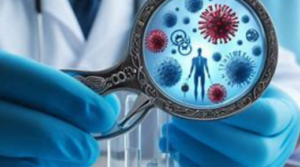Phases in Clinical Trials

clinical trials
From the COVID-19 Pandemic, we’ve heard a lot about clinical trials. All vaccines and COVID medications were developed and tested in clinical trials, which are typically divided into several distinct phases, each serving a specific purpose in developing a new treatment.
The general public needs to learn about the various phases of clinical trials. There are four trial phases, during which the researchers must complete the trial and wait for the final approval to make the medicine or treatment regime public. If you want to know in detail about the different phases of clinical trials, you are at the right place.
#1 – First Phase
The first phase of a clinical trial focuses on assessing the safety and appropriate dosage of the experimental treatment. In this phase, a small group of healthy volunteers or patients is recruited to receive the treatment. The primary goal is to determine the safe dosage range and identify potential side effects.
Once the medicine is administered, the participants are observed closely to understand the effects of the medicine. This way, the researchers can identify if the medicine works fine or has some side effects.
#2 – Second Phase
The first phase confirms the effective dosage of the medicine for the participants. Now, the researchers have to analyze the actual effectiveness of the medicine on the participants. This means the medicine should work as expected and heal the patients from diseases or provide immunity.
In the second phase, there are more participants than in the first phase. This is quite important as the major hurdle of identifying the safety and dosage of the medicine is covered.
You might like this:
- The Future of DCTs is Bright According to Big Pharma and FDA
- Clinical Trial Complexity: A Unique Challenge Tackled
#3 – Third Phase
In Phase 3, researchers seek to confirm the efficacy of the treatment observed in Phase 2 on a larger scale. These trials involve a more extensive and diverse group of participants, often across multiple research locations. This is a vast part of the trial, where a vast group of participants are undergoing the trial. This phase is essential for understanding the effects of the medicines on a large scale. In this phase, the participants from diverse genetic pools are invited. Hence, the effect of medicine on different gene pools, lifestyles, and demographics can be observed.
Final Phase
The final phase is one of the most crucial phases for the clinical trials. In this phase, the researchers scrutinize all the data collected through the research and provide it to the government authorities. Once submitted, the authorities will review the data and provide the final approval. This is a crucial stage, as any discrepancies in the data can cause the denial of permission. However, when approved, the medicine or the treatment option is available to the public.
Final Words
The systematic approach of the clinical trials is what makes them safe, secure, and reliable for the participants. With the carefully designed Phases governed by strict compliance, the participants only receive the best-in-class Medicare and innovative medications to cure the diseases or prevent them.







